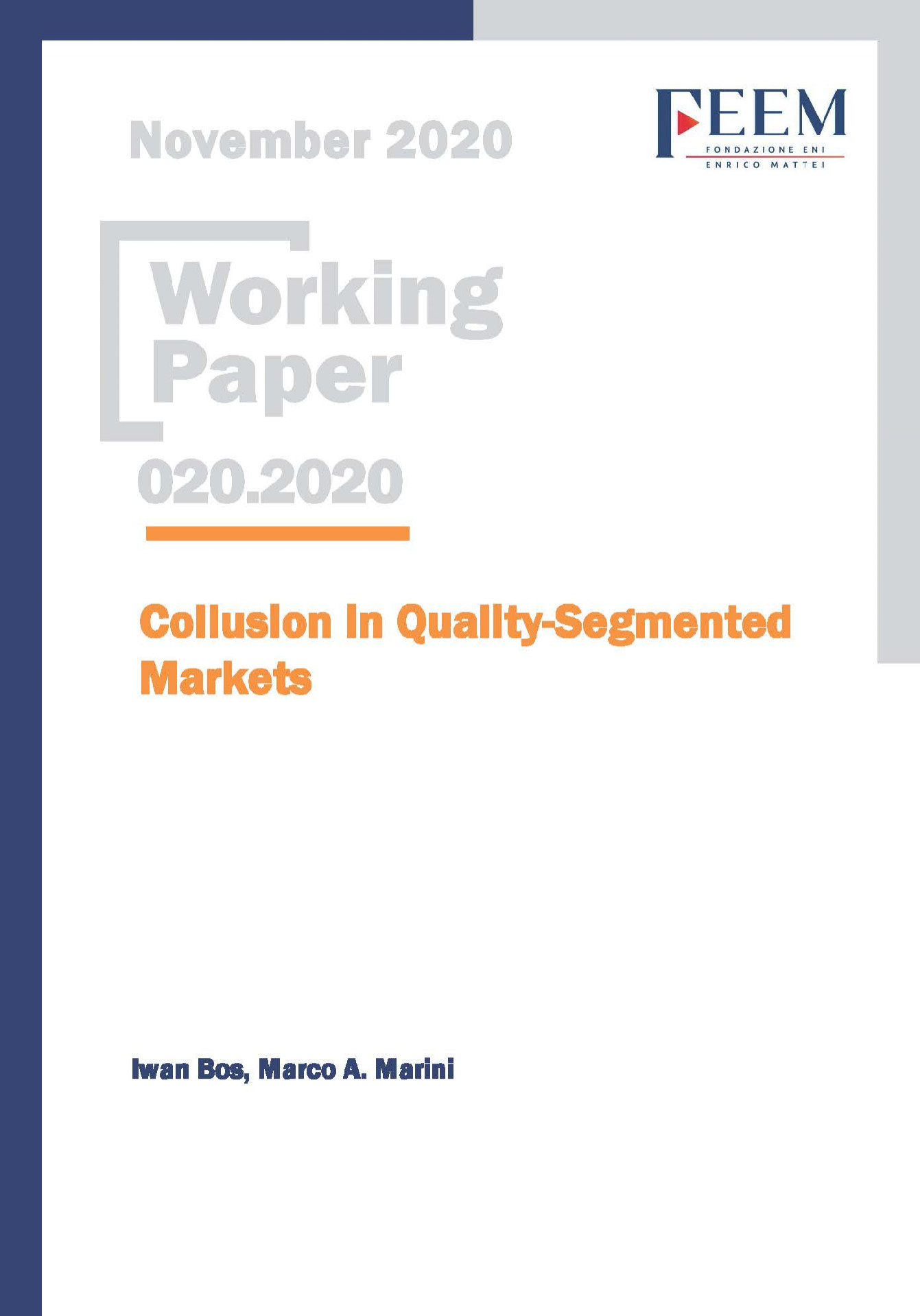Collusion in Quality-Segmented Markets

04.11.2020
D4, L1
Partial Cartels, Price Collusion, Market Segmentation, Vertical Differentiation
2030 Agenda
Sergio Vergalli
This paper analyzes price collusion in a repeated game with two submarkets; a standard and a premium quality segment. Within this setting, we study four types of price-fixing agreement: (i) a segment-wide cartel in the premium submarket only, (ii) a segment-wide cartel in the standard submarket only, (iii) two segment-wide cartels, and (iv) an industry-wide cartel. We present a complete characterization of the collusive pricing equilibrium and examine the corresponding effect on market shares and welfare. Partial cartels operating in a sufficiently large segment lose market share and the industry-wide cartel prefers to maintain market shares at pre-collusive levels. The impact on consumer and social welfare critically depends on the cost of producing quality. Moreover, given that there is a cartel, more collusion can be beneficial for society as a whole.
***
Suggested citation: Bos, I., M. A. Marini, (2020), ‘Collusion in Quality-Segmented Markets’, Nota di Lavoro 20.2020, Milano, Italy: Fondazione Eni Enrico Mattei
